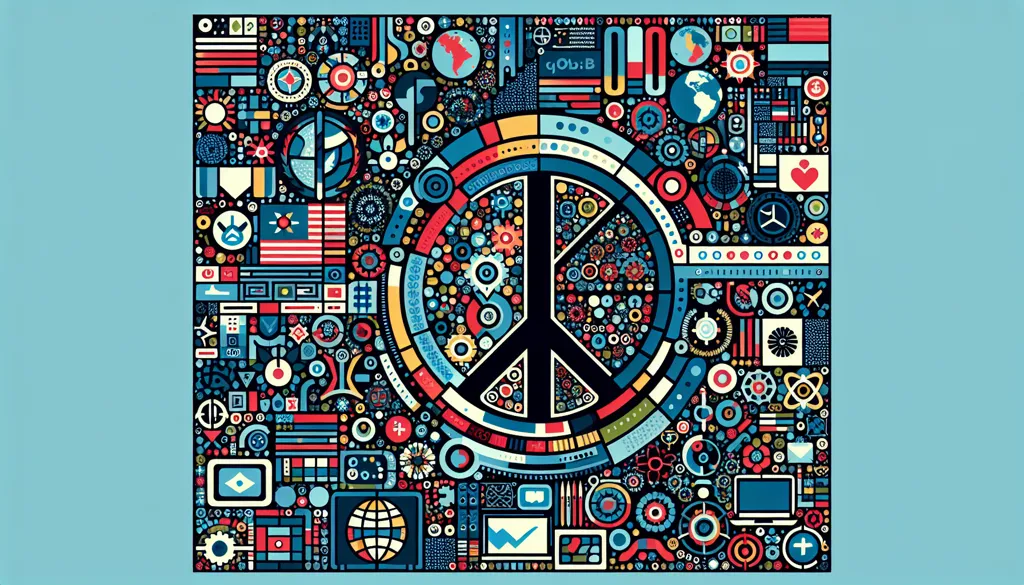Analyzing the Current Humanitarian and Security Challenges at Global Borders
As a mother living in Kansas, I often find myself reflecting on how global issues can sometimes feel so distant, yet they have a profound impact on our everyday lives. Recently, I've been following the concerning developments at international borders, particularly the humanitarian crises and security challenges that are unfolding. From the pushbacks in Poland to the drug smuggling issues between the U.S. and Mexico, it's clear that these issues require balanced analysis and compassionate solutions.
The Humanitarian Crisis at the Poland-Belarus Border
Human Rights Watch has recently highlighted the dire situation at the Poland-Belarus border, where Polish authorities have been accused of unlawfully and violently pushing back asylum seekers. This has resulted in significant humanitarian concerns, as people are forced to endure harsh conditions and face potential abuse on the Belarus side. The pushbacks, which violate EU law, have resulted in numerous deaths, and conditions in the exclusion zones have prevented humanitarian aid from reaching those in need.
As a parent, the thought of families and young children being stranded in such conditions is heartbreaking. It serves as a stark reminder that more needs to be done to ensure that people seeking safety are treated humanely. Poland, as a member of the European Union, has a responsibility to uphold the right to seek asylum, providing a clear example for other nations.
The Complexities of Border Security and Immigration
Meanwhile, the Canada-U.S. border has been under scrutiny due to increased tensions and concerns over illegal crossings and drug trafficking. The longest undefended border in the world is facing challenges that have led to political disputes and calls for stricter security measures. This situation is reminiscent of historical smuggling activities, highlighting the ongoing nature of such issues.
From a moderate perspective, it's essential to balance security with compassion. While it's crucial to address illegal activities, we must also consider the human stories behind migration. Migrants often flee from dire circumstances, seeking better opportunities for their families, much like many of us would in similar situations.
Drug Trafficking and Its Impact on Society
The issue of drug trafficking, particularly fentanyl, has become a significant concern in the United States. The synthetic opioid crisis has claimed numerous lives and has been linked to increased smuggling activities at the southern border. Despite significant efforts to curb the flow of drugs, the crisis persists, prompting calls for comprehensive strategies that address both supply and demand.
As a concerned citizen, I see the importance of a multifaceted approach that includes law enforcement, public health initiatives, and international cooperation. It's vital to tackle the root causes of drug addiction and invest in prevention and treatment programs. This holistic approach can help reduce the devastating impact of drugs on communities, including those like mine in Kansas.
Potential Solutions and Path Forward
Addressing these complex border issues requires a thoughtful approach that considers both security and humanitarian needs. For Poland, allowing access to asylum procedures and involving humanitarian organizations could be the first step towards a more humane border policy. Similarly, for the U.S., strengthening partnerships with neighboring countries and investing in border technology could enhance security without compromising human rights.
Moreover, fostering public awareness and education about these issues can help build empathy and understanding. As someone who values family and community, I believe that by working together, we can find solutions that respect human dignity while ensuring safety and security.
Conclusion
The challenges at global borders highlight the need for balanced policies that address security concerns while upholding human rights. As we navigate these complex issues, it's crucial to remember the human lives at stake and strive for solutions that reflect our shared values of compassion and respect. By fostering collaboration and understanding, we can work towards a future where borders are managed effectively and humanely.

